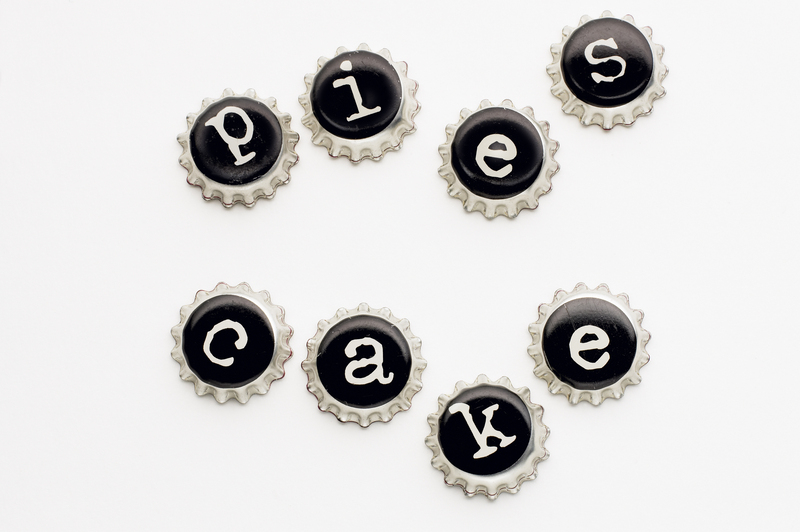Cost-Effective Strategies for Bulky Waste Item Disposal
Handling unwanted large items can be a daunting task for homeowners and businesses alike. Whether you're disposing of old furniture, appliances, mattresses, or outdated electronics, it's crucial to find smart, cost-effective strategies for bulky waste item disposal. Not only does efficient disposal keep clutter at bay, but it also helps the environment by diverting items from landfills whenever possible. This comprehensive guide will explore the most affordable and practical options to efficiently get rid of your bulky junk in a responsible manner.

Understanding Bulky Waste: What Does It Include?
Bulky waste generally refers to large items that cannot fit into a standard rubbish bin. These items typically include:
- Furniture (sofas, chairs, tables, mattresses)
- Appliances (refrigerators, washing machines, ovens)
- Electronics (televisions, computers, stereos)
- Carpets and rugs
- Bicycles, garden equipment and other big household items
Understanding which items are classified as bulky is your first step to a cost-effective bulky waste solution. Most municipalities have their own definitions and rules, so be sure to check with your local council or waste management provider for specific guidelines.
Why Proper Disposal of Bulky Items Matters
Proper disposal of bulky waste goes beyond just maintaining a clutter-free space. Here are a few reasons why responsible, affordable bulky item disposal is important:
- Environmental Protection: Many bulky items may contain hazardous materials or can take centuries to decompose in landfills.
- Resource Recovery: Recycling and reusing prevent useful materials from being wasted.
- Legal Compliance: Inappropriate dumping can lead to hefty fines.
- Community Well-being: Unwanted items left by roads or in yards can create safety hazards and diminish neighborhood appearance.
Top Affordable Methods for Disposing Bulky Waste
Disposing of bulky items doesn't have to break the bank. From using free services to DIY options and community programs, there are numerous ways to manage large waste items cost-effectively. Let's take a look at some tried-and-true strategies for budget-friendly bulky junk disposal.
1. Take Advantage of Municipal Bulk Waste Collection Services
Many cities and towns offer residents scheduled bulk waste pickup days, often at little to no extra cost. Typical services include curbside removal of large furniture or appliances. Be aware that regulations may restrict the types or quantities of items, so always check with your local solid waste department.
- Pros: Convenient, often free or included in local taxes, environmentally responsible.
- Cons: Limited items per collection, specific scheduling, may not take certain materials.
Tip: To stay cost-effective, plan your disposals in advance and accumulate items for collection only when needed, rather than making multiple requests.
2. Donate or Gift Useable Items
One of the best cost-effective bulky waste removal strategies is to give your items a second life by donating them. Local charities, thrift shops, or online marketplaces often accept gently used furniture or appliances.
- Check with local non-profits or shelters for furniture or appliance donation drives.
- Use freecycle groups, neighborhood social networks, or classified ads to offer items for free.
Donating not only saves on potential disposal fees but may also qualify you for a tax deduction (check your jurisdiction rules).
3. Host a Garage Sale or Offer Items Online
Why not make some money from your unwanted items? Hosting a yard or garage sale is a simple yet cost-effective way to downsize bulky possessions. Alternatively, post items on online sales platforms.
- Facebook Marketplace, Craigslist, and community forums are perfect for advertising large items.
- Specify that buyers must pick up (or arrange transport), saving you on disposal costs.
This method not only saves money but can turn bulky waste disposal into a source of extra income.
4. DIY Drop-Off at Local Recycling or Disposal Centres
If you have a vehicle or can borrow one, self-hauling bulky waste is often the cheapest method. Most communities offer public recycling centers, transfer stations, or landfills where you can drop off large items for a nominal fee or sometimes free.
- Check online or call ahead to verify hours, accepted items, and charges.
- Many centers separate items for recycling, electronics, or hazardous waste.
Pro Tip: Sort items before your trip to avoid confusion or additional fees at the facility.
5. Bulk Waste Collection Events and Community Clean-Up Days
Many municipalities and non-profit organizations sponsor annual or semi-annual bulky.waste collection events. These events generally allow residents to dispose of a set volume or load of large items free of charge.
- Take advantage of local newsletters or event calendars to stay informed.
- Ask neighbors to join in, potentially saving on transport costs by sharing a vehicle.
6. Responsible Appliance and Electronic Recycling
Certain large items, especially appliances and electronics, should never be sent to landfill. Many retailers and manufacturers offer recycling programs and will pick up your old unit when you purchase a replacement.
- Local e-waste recycling events often collect TVs, computers, and other devices free or for low cost.
- Consider contacting the manufacturer for extended producer responsibility take-back.
Proper disposal avoids toxic waste and can often be arranged at zero cost, keeping your strategy for bulky waste item disposal both affordable and eco-friendly.
7. Share Disposal Costs with Neighbors
For rural areas or places without regular bulk collection, consider pooling resources with neighbors. Sharing rent for a dumpster, hauling service, or trip to the landfill can dramatically reduce the cost of bulky junk removal.
- Coordinate collection dates to maximize efficiency.
- Choose an appropriately sized vehicle or container to avoid paying for unused space.
8. Hire a Low-Cost Junk Removal Service
For those who can't lift or transport items, professional junk removal companies are a practical solution. While pricier than DIY, many companies now offer discount bulk waste item pickup, especially if you group items or schedule during off-peak times.
- Book ahead and shop around for quotes to secure the best deal.
- Some services sort and donate or recycle items for you, reducing environmental impact.
Additional Tips for Cheaper Bulky Item Disposal
- Break Down Large Items: Disassemble furniture or appliances to fit in standard bins or vehicles, reducing costs.
- Don't Wait Until the Last Minute: Emergency pickups are often more expensive. Planning ahead can open up free or low-cost options.
- Check for Free Appliance Removal: Some utility providers offer free pick-up and cash rebates for working appliances.
- Understand Local Laws: Some areas fine for leaving items curbside outside permitted windows.
- Label Hazardous Contaminants: Many electronics and appliances have specific requirements for disposal.
Common Mistakes That Make Bulky Waste Removal Expensive
- Ignoring Local Pick-up Schedules: Missing council collection days forces you to hire private haulers.
- Mixing Recyclables with General Waste: This might lead to extra landfill charges.
- Improper Preparation: Failing to disassemble or clean items may lead to rejection or surcharges.
Eco-Friendly Bulky Waste Disposal: Saving Money & the Planet
A truly cost-effective bulky waste disposal strategy also considers environmental impact. Here's how you can keep costs low while minimizing your ecological footprint:
- Reuse and Upcycle: Transform old doors, windows, or furniture into new, functional pieces.
- Sell to Scrap Yards: Appliances and metal furniture may yield cash from scrap metal recyclers.
- Participate in Repair Cafes: Fixing appliances or furniture often costs less than disposal or replacement.
- Choose Green Disposal Services: Many companies offer guarantees that the majority of materials are recycled or repurposed.
When Professional Help Is Worth It
Despite the range of DIY and free solutions, there are situations where hiring experts for affordable bulky item removal is justified:
- You're dealing with hazardous materials (e.g., refrigerants, batteries, chemicals).
- Items are too heavy or require special equipment for removal.
- Disposal must be fast, such as for moving deadlines or safety compliance.
In these cases, ask about discounts for bulk removals, off-peak rates, or company recycling rates to keep costs under control.

Frequently Asked Questions
What is the cheapest way to dispose of bulky waste?
The most affordable option is using free municipal bulk pickup, donating/gifting items, or self-hauling to a recycling center. Always check community programs first.
Are there items that can't go in bulk waste?
Yes. Hazardous materials, construction debris, and certain electronics often require specialty disposal. Consult your local guidelines for restrictions.
Can I leave old furniture by the curb?
Only during designated collection windows. Unscheduled dumping may lead to fines.
How can I avoid disposal fees?
Opt for donation, community collection events, or plan for municipal pickup days. Disassembling items to fit in standard waste streams also helps.
Final Thoughts: Smart Strategies for Bulky Waste Item Disposal
Proper disposal of large, unwanted items doesn't have to be expensive or difficult. By leveraging free and low-cost community services, giving away or selling usable items, and planning carefully, you can keep costs down and minimize environmental impact. Remember: cost-effective bulky waste item disposal is about being resourceful--always look for local opportunities before paying out of pocket. With these strategies, clearing out your space will be easier, greener, and more economical.
